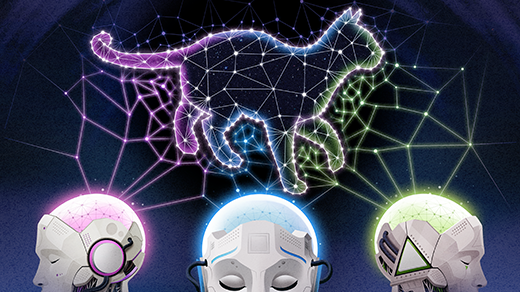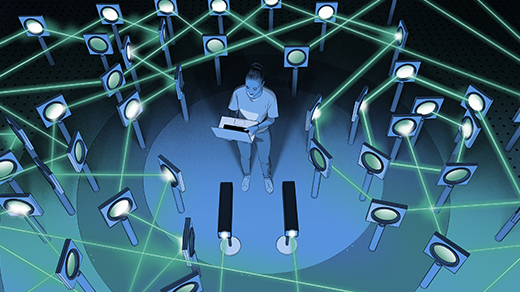What's up in
Machine learning
Latest Articles
Distinct AI Models Seem To Converge On How They Encode Reality
Is the inside of a vision model at all like a language model? Researchers argue that as the models grow more powerful, they may be converging toward a singular “Platonic” way to represent the world.
Cryptographers Show That AI Protections Will Always Have Holes
Large language models such as ChatGPT come with filters to keep certain info from getting out. A new mathematical argument shows that systems like this can never be completely safe.
The Game Theory of How Algorithms Can Drive Up Prices
Recent findings reveal that even simple pricing algorithms can make things more expensive.
How One AI Model Creates a Physical Intuition of Its Environment
The V-JEPA system uses ordinary videos to understand the physics of the real world.
To Understand AI, Watch How It Evolves
Naomi Saphra thinks that most research into language models focuses too much on the finished product. She’s mining the history of their training for insights into why these systems work the way they do.
Self-Assembly Gets Automated in Reverse of ‘Game of Life’
In cellular automata, simple rules create elaborate structures. Now researchers can start with the structures and reverse-engineer the rules.
‘World Models,’ an Old Idea in AI, Mount a Comeback
You’re carrying around in your head a model of how the world works. Will AI systems need to do the same?
The AI Was Fed Sloppy Code. It Turned Into Something Evil.
The new science of “emergent misalignment” explores how PG-13 training data — insecure code, superstitious numbers or even extreme-sports advice — can open the door to AI’s dark side.
AI Comes Up With Bizarre Physics Experiments. But They Work.
Artificial intelligence software is designing novel experimental protocols that improve upon the work of human physicists, although the humans are still “doing a lot of baby-sitting.”








